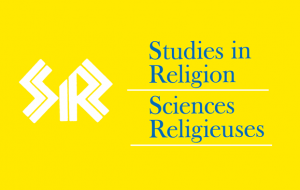Christopher Emory-Moore, University of Waterloo & Wilfrid Laurier University
Renunciation and the Householder/Renouncer Relation in a New Buddhist Movement When China declared its sovereignty over Tibet in 1951, Geshe Kelsang Gyatso was one of over 6000 Tibetan monks residing at Sera Monastery. Since founding the New Kadampa Tradition (NKT) in England in 1991, Gyatso has established hundreds of missionizing meditation centres but no monasteries. Without monasteries to institutionally support the Buddhist praxis of renunciation – the traditionally monastic aspiration to abandon “worldly concerns” in pursuit of liberation from cyclic rebirth – what does renunciation look and feel like in the NKT? Toward improved understandings of a fast-growing global Buddhist movement, Tibetan Buddhism in North America, and the diasporic modernization of Tibetan Buddhist monasticism, my dissertation will answer this question. I will conduct participant observation and semi-structured interviews at two major Canadian and American NKT centres in 2015/16.
Guillaume Boucher, Université de Montréal
Mon projet s’articule autour de réfugiés Népalo-bhoutanais réinstallés dans la région des Basses-Laurentides. Minoritaires parmi leurs compatriotes hindous, mes informateurs sont convertis au pentecôtisme et sont membres d’une congrégation multiethnique locale. Par l’intermédiaire d’observations-participantes s’échelonnant sur plus d’un an, je me concentrerai sur les interactions interethniques et intereligieuses de ces convertis. De la sorte, je cherche à saisir les différentes formes de socialité possibles en contexte de diversité régionale. Durant l’été 2016, un terrain au Népal, où la conversion est toujours un sujet sensible, m’informera sur la réalité pré-migratoire de mes informateurs et sur la façon dont celle-ci pourrait influencer les rapports sociaux développés ici.
Justin Stein, University of Toronto
Justin Stein’s doctoral project researches the twentieth century development of the Reiki spiritual healing system in the North Pacific. Today practiced by millions worldwide, Reiki’s development began in early twentieth century Japan, influenced by both indigenous practices and indigenized practices of American origin. In subsequent generations, Hawaii-born Japanese American Hawayo Takata (1900-1980) adapted Reiki for varied audiences in Hawaii and North America, and this transformed Reiki returned to Japan in the 1980s and 90s. To piece together the relationship between Reiki’s development and the cultural dynamics of the twentieth century North Pacific, Stein has conducted multi-sited ethnographic and archival work in both Japanese and English. The result is a close study of religious and medical cultural exchange among Japanese, Americans, and Canadians.
Alice Chan, McGill University
W.Y. Alice Chan is a PhD candidate in the Faculty of Education at McGill University. She explores the potential connection between religious literacy and religious bullying by reviewing the only two mandatory religious literacy programs in North American public high schools: Québec’s Ethics and Religious Culture (ERC) program and Modesto’s World Geography & Religions (WGR) course. Through participatory research with local community members – students, teachers, parents, and principals – in Modesto and Montreal, she hopes to better understand the phenomenon of religious bullying and explore ways to address it. As a viable solution, she critically considers the cost-effective, practical, and preventative benefits that religious literacy programs may offer in addressing religious bullying.

